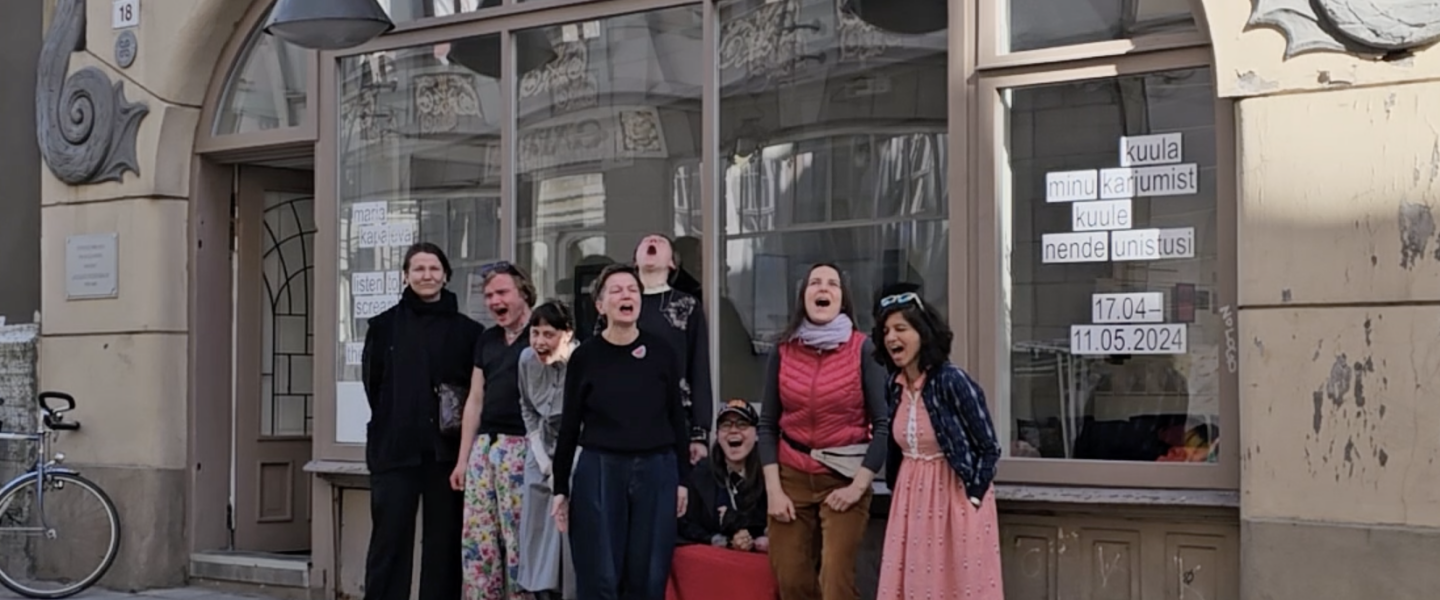
Image of a collective screaming at the closure of the exhibition, Draakoni Gallery, Tallinn, Estonia, 11.05.2024, still from the video by Anna Mari Liivrand
EKA, A502
Start Date:
03.06.2024
Start Time:
12:00
End Date:
03.06.2024
The peer-review of Maria Kapajeva’s exhibition “Listen To My Scream, Hear Their Dreams” will take place on June 3 12.00-13.30 in EKA, room A502. This exhibition is the second event of Kapajeva’s practice-based doctoral studies.
The thesis is supervised by Dr. Redi Koobak (University of Strathclyde, Glasgow) and Prof. Annika Elisabeth von Hausswolff (University of Gothenburg). The peer-reviewers of the exhibition are Dr. Ingrid Ruudi (EKA) and Dr. Britta Benno (EKA).
The exhibition was open 17.04.—11.05.2024 at Draakoni Gallery in Tallinn.
Maria Kapajeva’s exhibition, “Listen To My Scream, Hear Their Dreams,” is profoundly influenced by Draakon Gallery’s location directly across from the Russian Embassy in Tallinn’s Old Town. Positioned in this manner, Kapajeva aims to foster a more nuanced dialogue regarding the ongoing war in Ukraine, which has led to a continual exposure to harrowing imagery. Consequently, a process of desensitization has transpired, rendering us less able to empathize with the enduring violence faced by real individuals still fighting for their lives in Ukraine. The intricate details, nuances, and personal narratives have been reduced to easily shareable content that briefly crosses our screens before fading into obscurity.
The artworks selected and created for this exhibition stem from the necessity to provide a platform for the personal accounts of those who have fled Ukraine, as well as the artist’s own imperative to express and scrutinize her suppressed anger regarding the ongoing conflict. In this exhibition, there are no images of war; instead, viewers are presented with works that demand time to engage with— to be read, listened to, and truly heard. These artworks compel us to scrutinize the language of the oppressor, where imperialist ambitions lurk behind ostensibly positive rhetoric. We encounter intimate tales of despair and devastation, yet also of hope and compassion. We are invited into a tumult of emotions, ultimately finding catharsis in releasing the anger buried deep within us.
